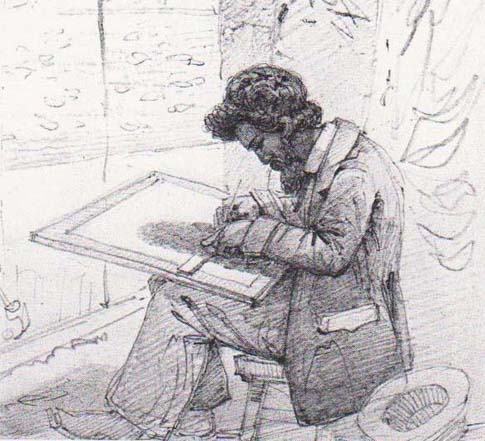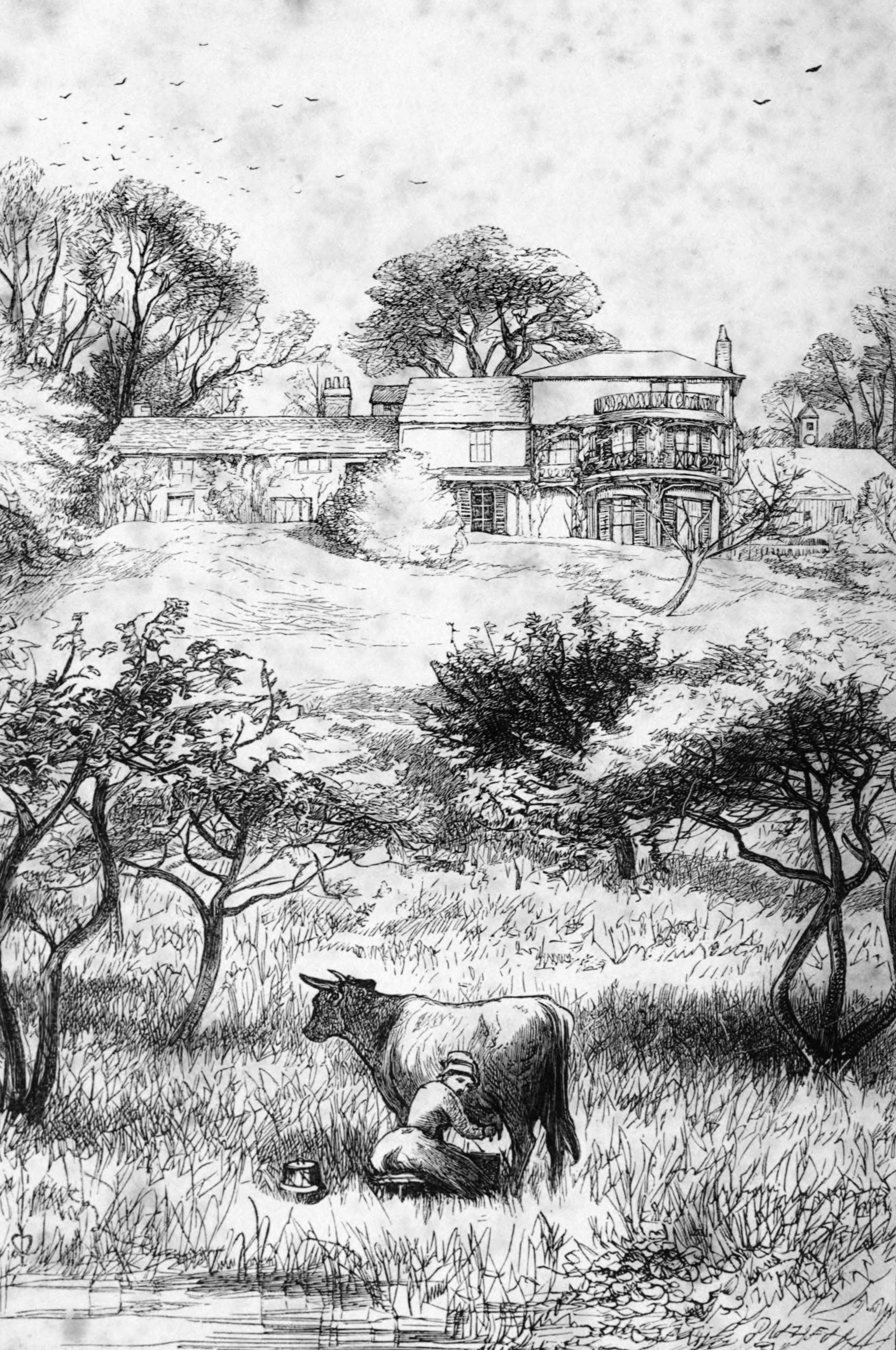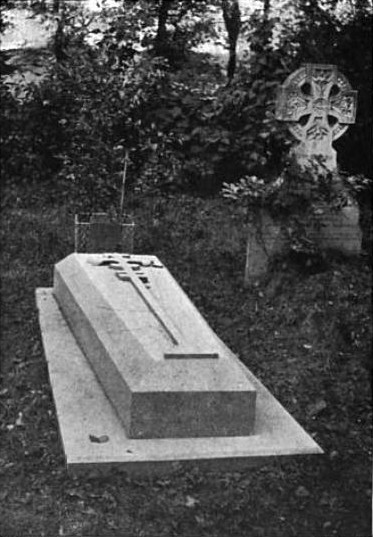|
Cosmopolitan Club (London)
The Cosmopolitan Club in London, England, was a club which existed from 1852 to 1902. It met in rooms at 30 Charles Street, off Berkeley Square, which had previously been the studio of George Frederic Watts and then of Henry Wyndham Phillips. The membership was limited to 60, and included literary men, artists, civil servants and political figures. Watts joined, as did the writers Matthew James Higgins (Jacob Omnium), Francis Turner Palgrave, Edward Fitzgerald and Anthony Trollope. Other members included the Prince of Wales, Henry Layard, Sir Robert Morier, James Spedding and William Gladstone. The club was "largely renowned for conversation", and is said to be the basis of "The Universe", "the club where the best informed political gossip is heard", in Trollope's novel ''Phineas Redux ''Phineas Redux'' is a novel by Anthony Trollope, first published in 1873 as a serial in ''The Graphic''. It is the fourth of the " Palliser" series of novels and the sequel to the second boo ... [...More Info...] [...Related Items...] OR: [Wikipedia] [Google] [Baidu] |
London
London is the capital and largest city of England and the United Kingdom, with a population of just under 9 million. It stands on the River Thames in south-east England at the head of a estuary down to the North Sea, and has been a major settlement for two millennia. The City of London, its ancient core and financial centre, was founded by the Romans as '' Londinium'' and retains its medieval boundaries.See also: Independent city § National capitals The City of Westminster, to the west of the City of London, has for centuries hosted the national government and parliament. Since the 19th century, the name "London" has also referred to the metropolis around this core, historically split between the counties of Middlesex, Essex, Surrey, Kent, and Hertfordshire, which largely comprises Greater London, governed by the Greater London Authority.The Greater London Authority consists of the Mayor of London and the London Assembly. The London Mayor is distinguished fr ... [...More Info...] [...Related Items...] OR: [Wikipedia] [Google] [Baidu] |
Prince Of Wales
Prince of Wales ( cy, Tywysog Cymru, ; la, Princeps Cambriae/Walliae) is a title traditionally given to the heir apparent to the English and later British throne. Prior to the conquest by Edward I in the 13th century, it was used by the rulers of independent Wales. The first native Welsh prince was Gruffudd ap Cynan of Gwynedd, in 1137, although his son Owain Gwynedd (Owain ap Gruffudd) is often cited as having established the title. Llywelyn the Great is typically regarded as the strongest leader, holding power over the vast majority of Wales for 45 years. One of the last independent princes was Llywelyn ap Gruffydd (Llywelyn the Last), who was killed at the Battle of Orewin Bridge in 1282. His brother, Dafydd ap Gruffydd, was executed the following year. After these two deaths, Edward I of England invested his son Edward of Caernarfon as the first English prince of Wales in 1301. The title was later claimed by the heir of Gwynedd, Owain Glyndŵr (Owain ap Gruffydd), from ... [...More Info...] [...Related Items...] OR: [Wikipedia] [Google] [Baidu] |
1852 Establishments In England
Year 185 ( CLXXXV) was a common year starting on Friday (link will display the full calendar) of the Julian calendar. At the time, it was known as the Year of the Consulship of Lascivius and Atilius (or, less frequently, year 938 ''Ab urbe condita''). The denomination 185 for this year has been used since the early medieval period, when the Anno Domini calendar era became the prevalent method in Europe for naming years. Events By place Roman Empire * Nobles of Britain demand that Emperor Commodus rescind all power given to Tigidius Perennis, who is eventually executed. * Publius Helvius Pertinax is made governor of Britain and quells a mutiny of the British Roman legions who wanted him to become emperor. The disgruntled usurpers go on to attempt to assassinate the governor. * Tigidius Perennis, his family and many others are executed for conspiring against Commodus. * Commodus drains Rome's treasury to put on gladiatorial spectacles and confiscates property to suppor ... [...More Info...] [...Related Items...] OR: [Wikipedia] [Google] [Baidu] |
Phineas Redux
''Phineas Redux'' is a novel by Anthony Trollope, first published in 1873 as a serial in ''The Graphic''. It is the fourth of the " Palliser" series of novels and the sequel to the second book of the series, ''Phineas Finn''. Synopsis His beloved wife having died during pregnancy, Phineas Finn finds Irish society and his modest government position in Ireland dull and unsatisfying after the excitement of his former career as a Member of Parliament. Back in England, the Liberals are determined to overturn the Conservative majority in Parliament. As Finn had been considered the most promising of the younger set, he is encouraged to stand for Parliament again, and he takes the risk of giving up his salaried position. Returning to London, he renews his acquaintance with the wealthy widow Madame Max Goesler. In the past, she had offered to marry him and had been gently turned down; after an awkward first encounter, they renew their friendship. In the political arena, Finn loses t ... [...More Info...] [...Related Items...] OR: [Wikipedia] [Google] [Baidu] |
William Ewart Gladstone
William Ewart Gladstone ( ; 29 December 1809 – 19 May 1898) was a British statesman and Liberal politician. In a career lasting over 60 years, he served for 12 years as Prime Minister of the United Kingdom, spread over four non-consecutive terms (the most of any British prime minister) beginning in 1868 and ending in 1894. He also served as Chancellor of the Exchequer four times, serving over 12 years. Gladstone was born in Liverpool to Scottish parents. He first entered the House of Commons in 1832, beginning his political career as a High Tory, a grouping which became the Conservative Party under Robert Peel in 1834. Gladstone served as a minister in both of Peel's governments, and in 1846 joined the breakaway Peelite faction, which eventually merged into the new Liberal Party in 1859. He was chancellor under Lord Aberdeen (1852–1855), Lord Palmerston (1859–1865) and Lord Russell (1865–1866). Gladstone's own political doctrine—which emphasised equalit ... [...More Info...] [...Related Items...] OR: [Wikipedia] [Google] [Baidu] |
James Spedding
James Spedding (28 June 1808 – 9 March 1881) was an English author, chiefly known as the editor of the works of Francis Bacon. Life He was born in Cumberland, the younger son of a country squire, and was educated at Bury St Edmunds and Trinity College, Cambridge; where he took a second class degree in the classical tripos, was a Cambridge Apostle, and was junior ''optime'' in mathematics in 1831. In 1835 he entered the Colonial Office, but he resigned this post in 1841. In 1842 he was secretary to Lord Ashburton on his American mission, and in 1855 he became secretary to the Civil Service Commission; but from 1841 onwards he was constantly occupied in his researches into Bacon's life and philosophy. On 1 March 1881 he was knocked down by a cab in London, and on the 9th he died of erysipelas. Spedding's major edition of Bacon's works was begun in 1847 in collaboration with Robert Leslie Ellis and Douglas Denon Heath. In 1853 Ellis had to leave the work to Spedding, with the occa ... [...More Info...] [...Related Items...] OR: [Wikipedia] [Google] [Baidu] |
Robert Morier
Sir Robert Burnett David Morier (31 March 1826 – 16 November 1893) was a British diplomat, who most notably served as the British Ambassador to Russia between 1884 and 1893. Early life Born in Paris, Morier was descended from a family of diplomats of Huguenot origin, including his father David Richard Morier and his uncle James Justinian Morier. After private education he came up to Balliol College, Oxford. Here he attracted the notice of Benjamin Jowett, who became a friend. Career On leaving Oxford, Morier at first obtained an appointment in the Education Department, but resigned in 1852, and in the following year became attaché at Vienna. In the succeeding years he was attached in turn to almost every court in Germany. Restless in temperament and unconventional in method, he plunged into the vortex of German politics to a degree that did not always accord with the traditions of diplomacy. The most important years of his career in Germany were from 1866 to 1871, when he ... [...More Info...] [...Related Items...] OR: [Wikipedia] [Google] [Baidu] |
Henry Layard
Sir Austen Henry Layard (; 5 March 18175 July 1894) was an English Assyriologist, traveller, cuneiformist, art historian, draughtsman, collector, politician and diplomat. He was born to a mostly English family in Paris and largely raised in Italy. He is best known as the excavator of Nimrud and of Nineveh, where he uncovered a large proportion of the Assyrian palace reliefs known, and in 1851 the library of Ashurbanipal. Most of his finds are now in the British Museum. He made a large amount of money from his best-selling accounts of his excavations. He had a political career between 1852, when he was elected as a Member of Parliament, and 1869, holding various junior ministerial positions. He was then made ambassador to Madrid, then Constantinople, living much of the time in a palazzo he bought in Venice. During this period he built up a significant collection of paintings, which due to a legal loophole he had as a diplomat, he was able to extricate from Venice and bequeat ... [...More Info...] [...Related Items...] OR: [Wikipedia] [Google] [Baidu] |
Anthony Trollope
Anthony Trollope (; 24 April 1815 – 6 December 1882) was an English novelist and civil servant of the Victorian era. Among his best-known works is a series of novels collectively known as the '' Chronicles of Barsetshire'', which revolves around the imaginary county of Barsetshire. He also wrote novels on political, social, and gender issues, and other topical matters. Trollope's literary reputation dipped somewhat during the last years of his life, but he had regained the esteem of critics by the mid-20th century. Biography Anthony Trollope was the son of barrister Thomas Anthony Trollope and the novelist and travel writer Frances Milton Trollope. Though a clever and well-educated man and a Fellow of New College, Oxford, Thomas Trollope failed at the Bar due to his bad temper. Ventures into farming proved unprofitable, and he did not receive an expected inheritance when an elderly childless uncle remarried and had children. Thomas Trollope was the son of Rev. (Thomas) Ant ... [...More Info...] [...Related Items...] OR: [Wikipedia] [Google] [Baidu] |
Club (organization)
A club is an association of people united by a common interest or goal. A service club, for example, exists for voluntary or charitable activities. There are clubs devoted to hobbies and sports, social activities clubs, political and religious clubs, and so forth. History Historically, clubs occurred in all ancient states of which exists detailed knowledge. Once people started living together in larger groups, there was need for people with a common interest to be able to associate despite having no ties of kinship. Organizations of the sort have existed for many years, as evidenced by Ancient Greek clubs and associations (''collegia'') in Ancient Rome. Origins of the word and concept It is uncertain whether the use of the word "club" originated in its meaning of a knot of people, or from the fact that the members "clubbed" together to pay the expenses of their gatherings. The oldest English clubs were merely informal periodic gatherings of friends for the purpose of dining ... [...More Info...] [...Related Items...] OR: [Wikipedia] [Google] [Baidu] |
Edward FitzGerald (poet)
Edward FitzGerald or Fitzgerald (31 March 180914 June 1883) was an English poet and writer. His most famous poem is the first and best-known English translation of ''The Rubaiyat of Omar Khayyam'', which has kept its reputation and popularity since the 1860s. Life Edward FitzGerald was born Edward Purcell at Bredfield House in Bredfield, some two miles north of Woodbridge, Suffolk, England, in 1809. In 1818, his father, John Purcell, assumed the name and arms of his wife's family, the FitzGeralds. His elder brother John used the surname Purcell-Fitzgerald from 1858. The change of family name occurred shortly after FitzGerald's mother inherited a second fortune. She had previously inherited over half a million pounds from an aunt, but in 1818, her father died and left her considerably more than that. The FitzGeralds were one of the wealthiest families in England. Edward FitzGerald later commented that all of his relatives were mad; further, that he was insane as well, but was a ... [...More Info...] [...Related Items...] OR: [Wikipedia] [Google] [Baidu] |




